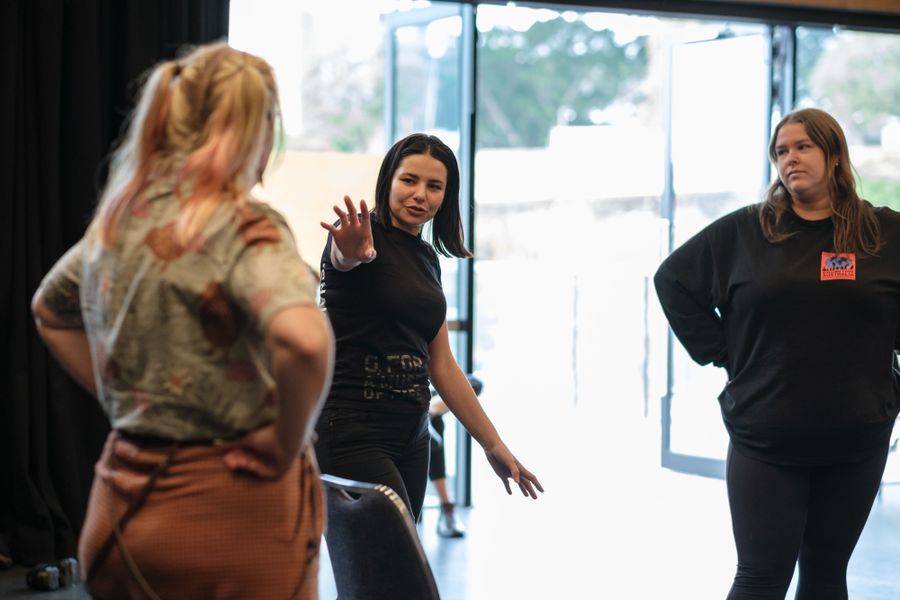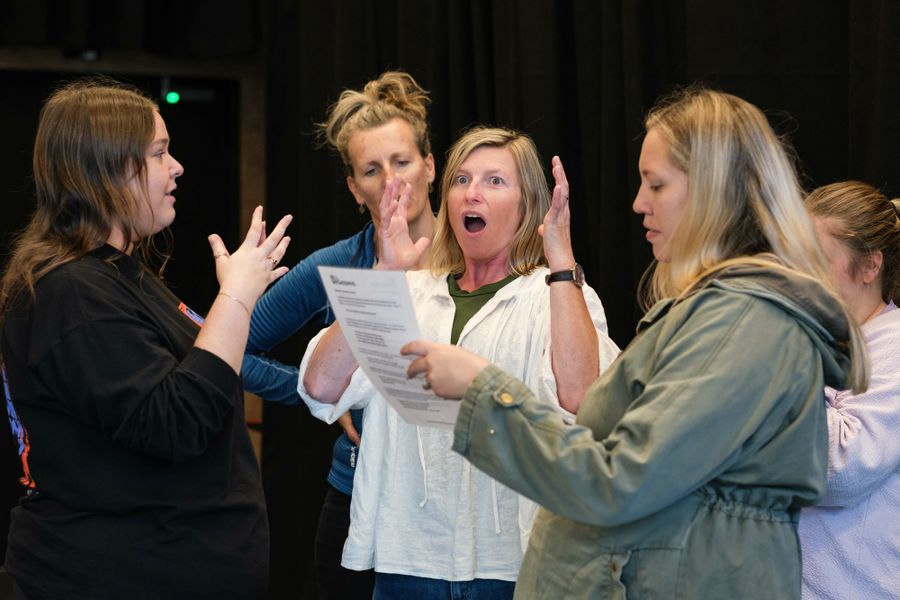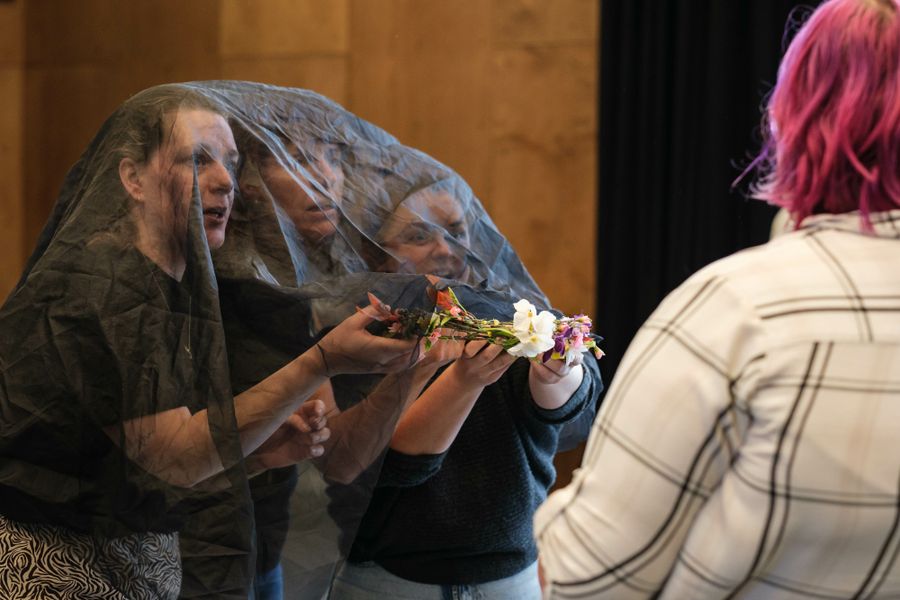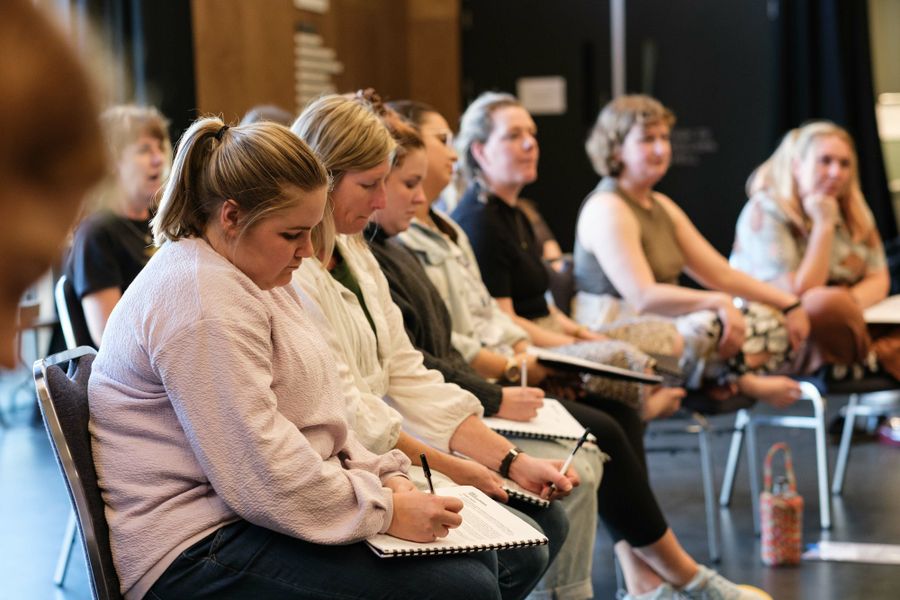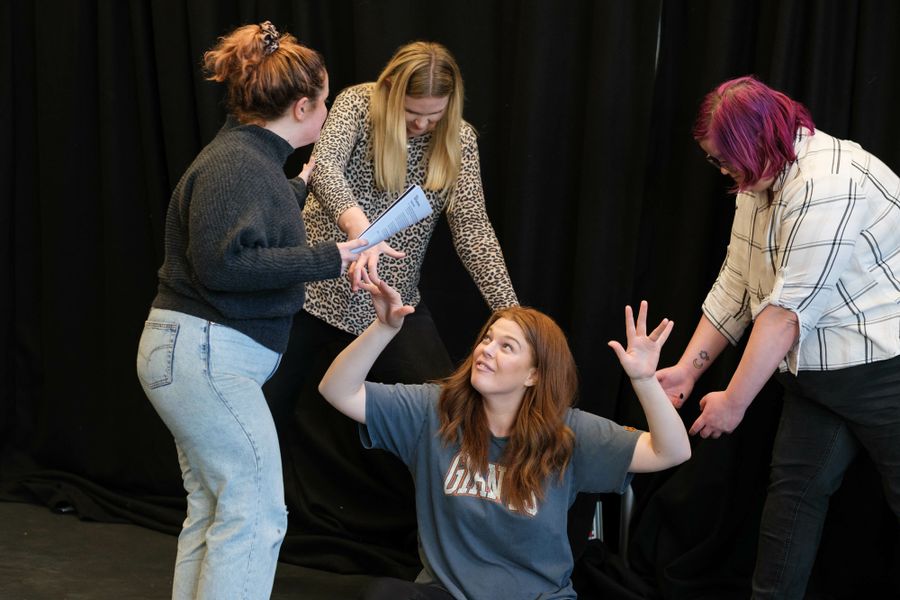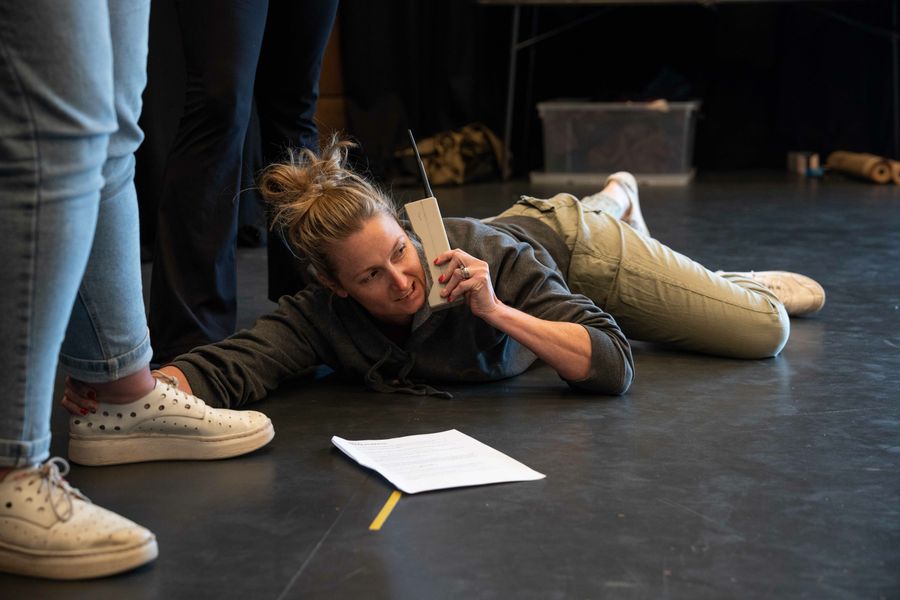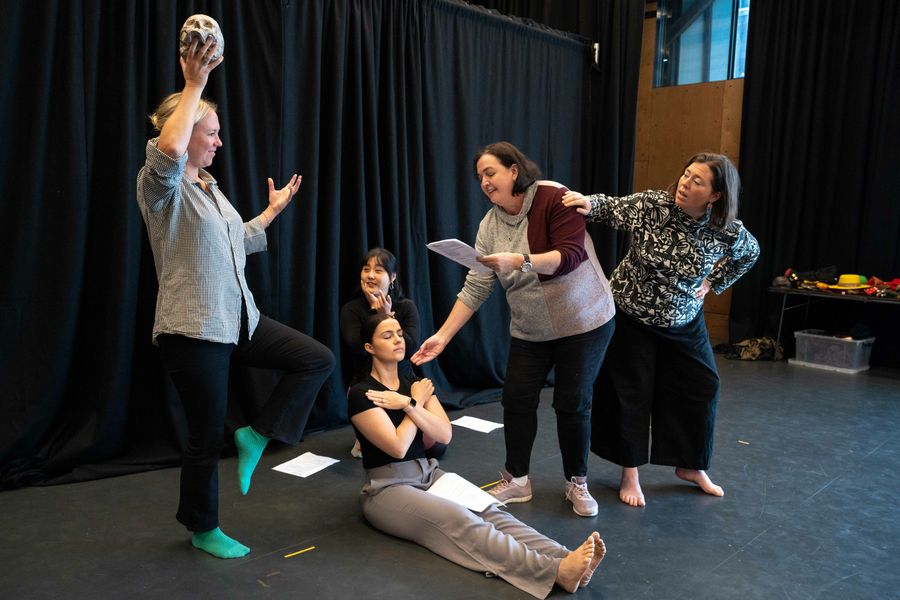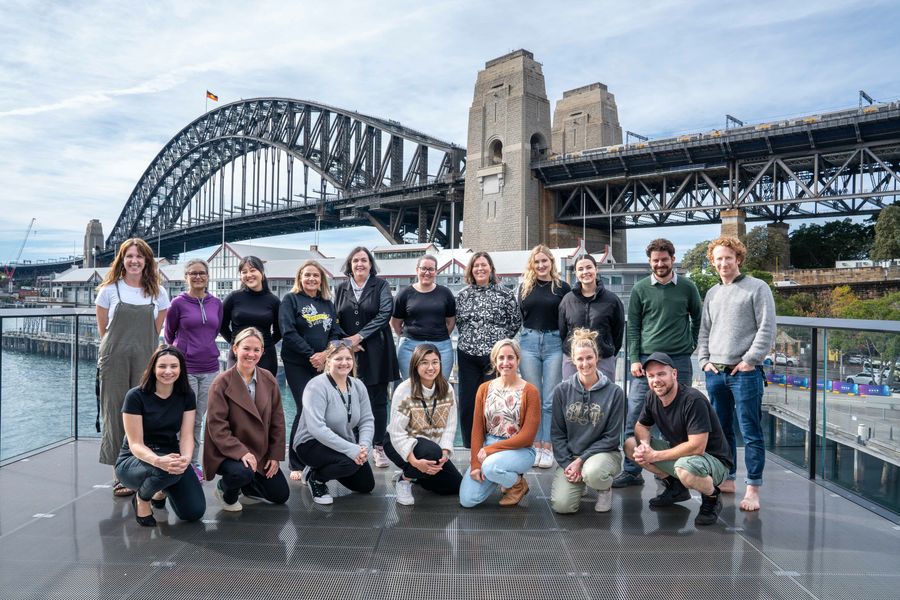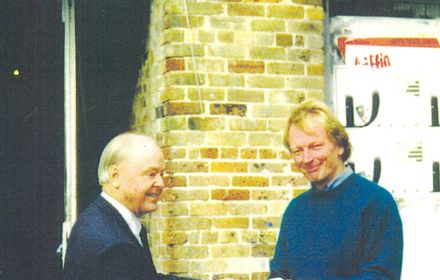The RTM reinforced the fact that embodiment and performance are modes of thinking. This is an approach that can be applied not just to English and Drama, but across all academic disciplines. So often, text-based learning is privileged over physical, dynamic work, as though getting up on your feet is in some way cheating or will distract from critical analysis. Participants were reminded that in fact, the opposite can be true. For children and teenagers with varying levels of academic inclination and ability, physical embodiment can be a far more direct, fruitful, exciting, and engaging way of accessing and analysing texts and concepts. It also does not have to replace literary analysis and text-based work. In fact, many of these exercises were explicitly aimed at providing a foundation from which students could then craft their own written essays.
Today, perhaps more than ever, students need to be given the tools to critically respond to and engage with complex texts. Shakespeare’s body of work carries with it four hundred years of academic thought, performance practice, cultural adaptation, and analysis. What better place for them to begin to develop their own, independent critical voice?
Many of the teachers who came to this year’s RTM arrived exhausted, burnt-out, and disillusioned. They all, without exception, left exhilarated, refreshed, and bursting with excitement to return to the classroom and teach Shakespeare. I’ve never heard the phrase ‘life-changing’ used so many times in such a short period.
As the child of a high school teacher, I know how difficult it can be to get time off for four days of professional development, and how exhausting the idea of sacrificing a whole weekend is. But I assure you, it is worth it. If you are an English or Drama teacher in regional or rural Australia, apply for the 2024 RTM. Do it. Crawl across whatever bureaucratic or administrative broken glass you have to to be there. Make it happen. It will transform your approach to Shakespeare, to English, and to teaching more broadly.
The Regional Teacher Mentorship is a Bell Shakespeare program designed to support regional and remote teachers from across Australia with teaching Shakespeare, and provide active learning strategies for all kinds of curriculums. 30 teachers are selected for a four-day intensive program and are mentored for the remainder of the year. Entries for the 2024 program will open in Term 4. Visit our website for more information.
The Regional Teacher Mentorship is supported by the Australian Government and Teachers Mutual Bank.


